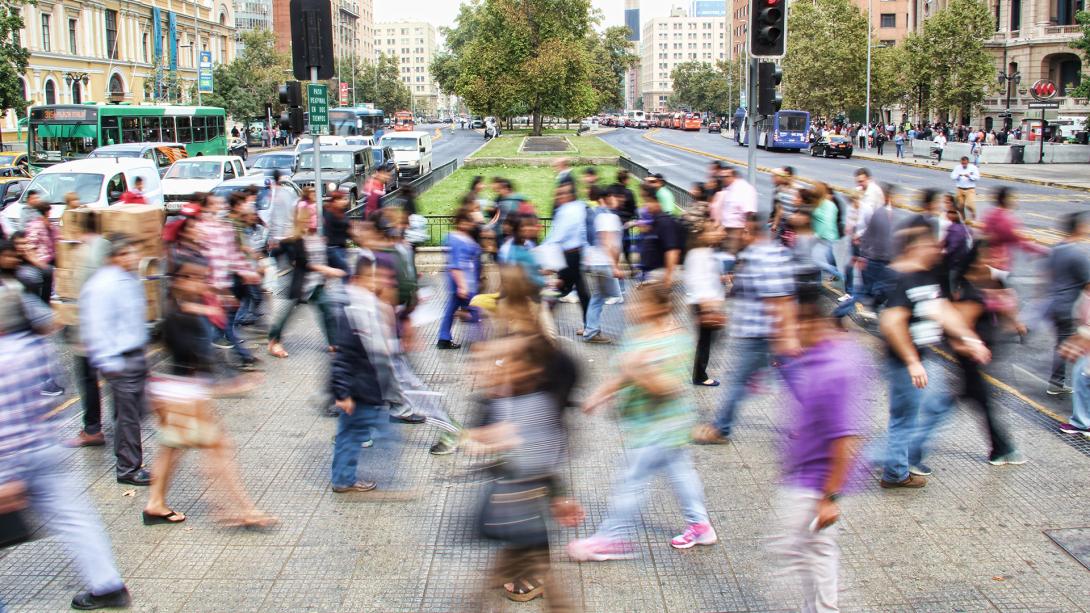
© Photo by Mauro Mora | Unsplash.com
Pope Francis in Fratelli Tutti points towards the need for nations to build unity based upon the reality of a common fraternity. He describes how “narrow forms of nationalism are an extreme expression of an inability to grasp the meaning” of the need to have a heart open to the whole world. The real worth of a country, he argues, is measured by its “ability to think not simply as a country but also as part of the larger human family” (141).
For her part, in The Art of Loving, in a reflection given on the Golden Rule, Chiara Lubich emphasizes how, if taken seriously, the paradigmatic principle of treating others as one would want to be treated “would be the greatest inducement to harmony among all kinds of people.” She asks us to imagine what “would the world be if not only individuals, but whole races and nationalities practiced the ‘Golden Rule’ in this form: ‘Love the other’s country as you love your own…’”
But, today, how often do we wonder: Are these aspirations, however laudatory, nothing more than naïve utopianism?
Overlooked aspects of patriotism
Patriotism is often perceived in a negative light as in contradistinction to the approach suggested by Pope Francis and Chiara Lubich. Critics will say, perhaps rightly, there is the need for a movement beyond our own interests in building towards a more fraternal politics, and patriotic fervor impedes that movement. Lord Acton, the nineteenth century English historian, politician, and writer, made a useful distinction in contrasting nationality and patriotism, arguing that the former is “affection and instinct” whereas the latter is a “moral relation.” Nationality involves “our connection to race” while patriotism encompasses “an awareness of our moral duties to the political community” we are in. In Patriotism, Morality, and Peace Stephen Nathanson outlined how patriotism involves a special identification with one’s own country, a concern for its well-being, and a willingness to sacrifice for the sake of the country’s good.
But, I think, in fact, that Chiara Lubich’s identification of love as the essential bond between people in the political realm is far more insightful than these.
While nationalism may emphasize a unity of cultural identity with the inclusion of language and heritage, patriotism is based on “love towards people” who share beliefs and ways of life. So, when we speak of patriotism, the emphasis is on the priority of persons and not on abstractions. In other words, there is no such thing as America or Canada as pure concepts. As Alexis Tocqueville keenly observed in Democracy in America, speaking of the United States, there are “Americans of all ages, all stations of life and all types of dispositions” forming associations to work for the good of all. Even Aristotle, in his Nicomachean Ethics, considered friendship as the highest form of politics, saying that it involves “joint perception” and “like-mindedness.” Thus, patriotism can be fundamentally understood as concerning and building on our relationship with others. It is a project continually realized in living and not a prefabricated notional given.
Little platoons
The eighteenth-century Anglo-Irish statesman, writer, and philosopher Edmund Burke once wrote on how it is the power of the “little platoon” in society which constitutes political reality. The movie Dunkirk directed by Christopher Nolan gives us an inkling of what Burke was suggesting. There is a scene in a British port, where a British teenager, George, is helping a father and his son unload a small yacht that has been requisitioned for the Dunkirk evacuation mission. You can see shining in their eyes something like what St. Paul says to the Romans: “we know all things work for the good.” By the movie’s end they are part of a whole civilian fleet — a rousing, motley armada of tugs, steamers, ferries and so on —racing across the Channel. In this case, it is the “lives of others” that are at stake. Their efforts, and that of countless others, end up rescuing over 300,000 men on that day.
Edmund Burke, in Reflections on the French Revolution, explains how to be attached to the subdivision, to love the little platoon we belong to in society, is the first principle (the germ as it were) of public affections. It is the first link in the series by which we proceed towards a love to our country, and to mankind. The interest of that portion of social arrangement is a trust in the hands of all those who compose it.
De Tocqueville asks why is it that, in the United States, people who have only met each other for the first time and with no previous acquaintance take “as zealous an interest in the affairs of… [their] township… county, and the whole state as if they were…[their] own?” It is, he suggests, because they are free to actively participate “in the government of society.” They are responsible because they can be responsible. So, we too are challenged to become participants and not mere spectators in the unfolding of a patriotic fraternity, beginning with each person. We are meant to live for the other.
When Chiara Lubich suggests that we love the other’s country as we love our own, she is not being utopian but sees how “the way in which
I welcome the other does not speak to who they are. Rather it speaks to who I am” as a human being. Patriotism is not simply some mere
feeling; it is an integral part of the logic of who I am as a person.
A patriotism of love
The reality, as Prof. David Walsh of The Catholic University of America pointed out, is that it is only nations that maintain any semblance of order for this to happen, because they are the largest communities of trust.
In Fratelli Tutti Pope Francis explains how love of the other begins with each of us, and this has consequences in how we put fraternity into practice in the public sphere. There is no room for “abstract moralizing” or remaining “indifferent bystanders,” the Pope says, because we must begin “case by case, act at the most concrete and local level” (68, 69, 70).
This is perhaps what Edmund Burke understood in using the image of the “little platoons” as constituting political society. And so, Pope Francis observes how we are called to unite as a family that is stronger than the sum of small individual members (78). We do not “decide who is close enough to be our neighbor, but rather we ourselves become neighbors to all” (80, my emphasis).
Likewise, as Professor Antonio Baggio, director of the Center for Research in Politics and Human Rights writes, when Chiara Lubich suggests that we love the other’s country as we love our own, she is not being utopian but sees how “the way in which I welcome the other does not speak to who they are. Rather it speaks to who I am” as a human being. Patriotism is not simply some mere feeling; it is an integral part of the logic of who I am as a person. Cain in the Old Testament, for example, could not understand this because he was unable to accept his relationship with Abel in saying “Am I my brother’s keeper?” But a true “patriotism of love” sets “aflame in the human heart” an unfolding of new horizons of meaning into the art of becoming who we are as persons.













